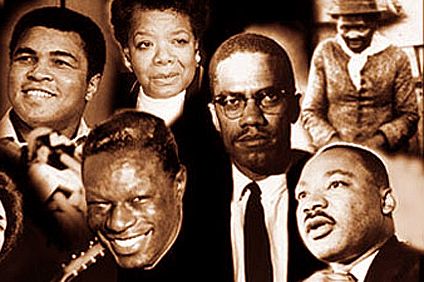February is Black History Month in the United States and Canada.

(And February is also National Bird-Feeding Month; March is Women’s History Month; April is Jazz Appreciation Month, Confederate History Month, and National Poetry Month; May is Neurofibromatosis Awareness Month, Mental Illness Awareness Month, and Jewish American Heritage Month; June is Caribbean American Heritage Month; September is National Childhood Obesity Awareness Month; October LGBT History Month, Filipino American History Month, National Breast Cancer Awareness Month; November is National Chronic Obstructive Pulmonary Disease Awareness Month; December is National Fruit Cake Month.)
Black History Month is a time when schools, colleges, and television programs feature famous individuals in the United States’s history who have been racialized as Black. People frequently learn about important individuals such as Dr. Martin Luther King, Jr., Rosa Parks, and Harriet Tubman during the month of February.
Recently, increasing controversy has arisen around whether Black History Month should even exist. I first became aware of these controversies when my doctoral advisor suggested I might enjoy the documentary More Than a Month. In this film, Shukree Tilghman goes on a mission to end Black History Month.
Objections to Black History Month focus on Black history being segregated from history collectively. People don’t learn how Rosa Parks worked with liberal White individuals of her time, such as the Durrs. People don’t learn about the centuries of codified violence against African Americans and learn little, if anything, about the true horrors of enslavement.
Except for a few symbolic gestures and celebrations during Black History Month, Black History Month really isn’t all that different from the other 11 “White History Months.”
Black History Month also focuses on a few of the “big names” – people know about Rosa Parks, but don’t know about Henry Box Brown, Anthony Johnson, Jourdon Anderson, Dr. Freda Celestine Gooden Richardson, Ida B. Wells, Jo Ann Gibson Robinson, Elmer Jackson, and an infinite number of other individuals who are specifically known to the historical record.
Some counter these objections and say that without Black History Month people would know even less about non-White individuals than they already do. Some suggest a month devoted to Black History is an indicator of respect and an effort to correct past injustices.
There are so many months commemorating different groups, foods, social concerns, and everything under the sun that any such month has the potential to bring true recognition yet also to be drowned out by other concerns. What prompts societies to have events honoring groups, such as Black History Month, and political motivations that contribute to its success or lack of success is also important to consider.
As a society, do we have commemorative months to bring attention to underrepresented groups and issues, or do we have commemorative months to avoid truly facing these groups and concerns and integrating them into society?
Finally – it is worth considering that Black History Month – a month ideally aimed at recognizing Black individuals and their contributions to history and Black history specifically – is segregated from history as generally taught and understood the rest of the time.
So, what are your thoughts: Is Black History Month a good/helpful holiday or not?